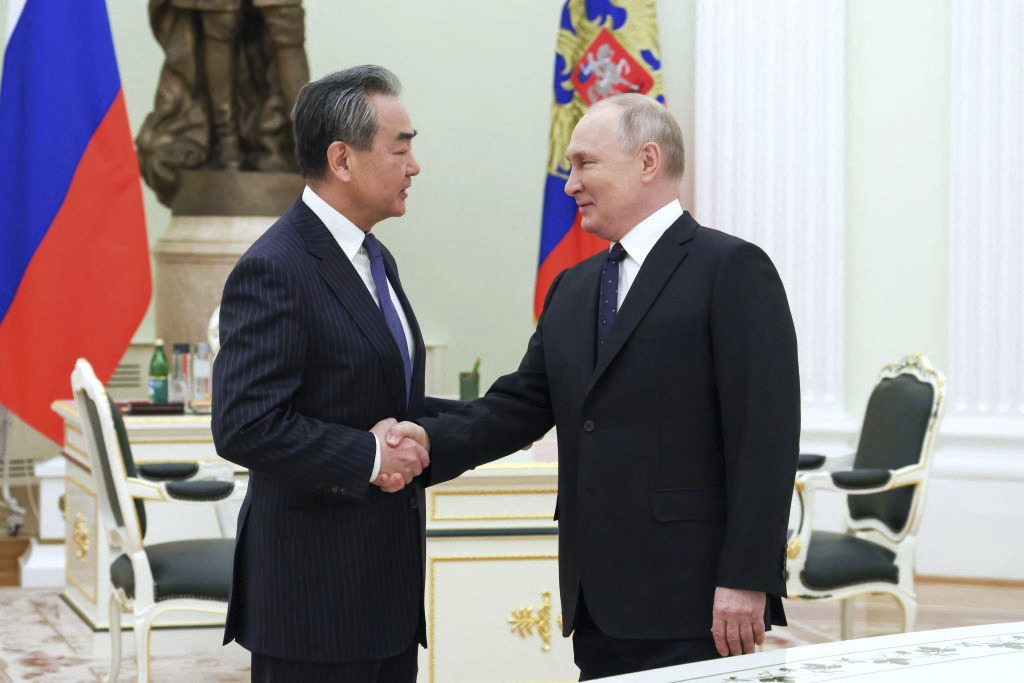China Crosses "Red Line" Advancing Russia's War Effort
by Judith Bergman • February 26, 2023 at 5:30 am
It has been known for quite a while that China has been undercutting Western sanctions against Russia.... and in their own national currencies. When, however, it was recently reported that "China is providing technology that Moscow's military needs," including "navigation equipment, jamming technology and jet-fighter parts," the move seemed to take the Biden administration by surprise.
China has already supplied significant military aid in the form of dual-use products that have both civil and military uses, including semiconductors used in a wide variety of weapons including fighter jets, helicopters, drones and guided missiles.
US ambassador to the United Nations Linda Thomas-Greenfield was even more explicit: If China provided lethal military aid to Russia, she said, it would cross a "red line."
It is highly questionable at this stage whether the Chinese will pay any heed to Blinken's or Thomas-Greenfield's warnings: In March 2022, the Biden administration delivered similarly worded threats to China -- that helping Russia evade sanctions would lead to "consequences." China did exactly that; a year later, "consequences" have yet to be seen.
These revelations are not only an embarrassment for the Biden administration -- which should have known and acted upon them long ago -- but also serve as yet another black hole in the ability of the United States to deter adversaries.
It shows, sadly, that the words and threats of the US carry zero weight internationally, and that America's most aggressive adversaries are able successfully to collaborate.

It has been known for quite a while that China has been undercutting Western sanctions against Russia through trade and Chinese purchases of long-term energy supplies.
Twenty days before the invasion of Ukraine, Russia and China declared a "no-limits" partnership, and have steadily been increasing trade with each other ever since -- and in their own national currencies. When, however, it was recently reported that "China is providing technology that Moscow's military needs," including "navigation equipment, jamming technology and jet-fighter parts," the move seemed to take the Biden administration by surprise.
China is "considering" what US Secretary of State Antony Blinken called "lethal" support to Russia, as he said in an interview with CBS on February 19. Asked what was meant by "lethal support," Blinken replied, "Weapons... There's a whole gamut of things that fit in that category, everything from ammunition to the weapons themselves."


